This article was co-authored by Lyssandra Guerra. Lyssandra Guerra is a Certified Nutrition & Wellness Consultant and the Founder of Native Palms Nutrition based in Oakland, California. She has over five years of nutrition coaching experience and specializes in providing support to overcome digestive issues, food sensitivities, sugar cravings, and other related dilemmas. She received her holistic nutrition certification from the Bauman College: Holistic Nutrition and Culinary Arts in 2014.
There are 16 references cited in this article, which can be found at the bottom of the page.
This article has been viewed 40,619 times.
When you fast, you’re purposefully not eating food for a specific period of time, which can be an effective way to lose and maintain weight.[1] Fasting helps manage blood pressure and cholesterol, and also balances blood sugar levels by helping insulin go down so that your body burns fat for fuel. The toughest part about fasting is the hunger you can sometimes feel while you wait for your next meal. Fortunately, there are a few things you can try to help curb your appetite and keep your mind off of those nagging hunger pangs.
Steps
Reducing Your Appetite
-
1Pour yourself a glass of water anytime you feel hungry. If you feel hungry, it’s possible that you’re actually just thirsty and your body can’t tell the difference.[2] Fix yourself a nice glass of water and drink it to stay hydrated and control your appetite until your feeding window opens.
- Try to drink at least 1.5 litres (0.40 US gal) of water a day.[3]
-
2Grab a sparkling water to help you feel less hungry. The carbonation in a can or bottle of sparkling water can help suppress your appetite and make you feel less hungry while you’re fasting.[4] Crack open a fresh, bubbly sparkling water to drink whenever the hunger pangs strike.
- Sparkling water also doesn’t have any sugar or calories and will help keep you hydrated.
- Try flavored sparkling water for a tasty beverage that won’t break your fast.
Advertisement -
3Drink some black coffee to help curb your appetite. Black coffee contains caffeine, which can help suppress your appetite and make you feel more satiated during your fasting window.[5] Studies also suggest that coffee contains ingredients that may help lower your hunger.[6]
- Avoid adding sugar or creamer to your coffee, which will definitely break your fast!
- Try not to consume more than 500-600 mg of caffeine, which is about 4-7 cups of coffee, or you could experience anxiety, tremors, or a rapid heart rate.[7]
-
4Steep a glass of black, green, or herbal tea to perk yourself up. Both green and black tea also contain caffeine.[8] Caffeine can lower your hunger levels and help you get through your fast.[9] Additionally, studies suggest that green tea can help you burn fat and modify your appetite, which may make you less hungry.[10] Steep a bag of tea in 1 cup (240 mL) of hot water for about 3-5 minutes and then remove it before you drink it. If you don’t want caffeine, make a nice cup of herbal tea.
- Avoid herbal teas that contain dried fruit for flavor. The sugar in the fruit can break your fast.
-
5Take a sip of apple cider vinegar to feel satiated. Apple cider vinegar contains acetic acid.[11] Studies show that acetic acid may help reduce your appetite and hunger pangs.[12] If you’re feeling really hungry, drink about 1–2 teaspoons (4.9–9.9 mL) of apple cider vinegar to suppress your appetite and help you get through your fast.
- Choose apple cider vinegar instead of white vinegar.
- If the taste of pure apple cider vinegar is too strong, add it to a glass of water to dilute it.
-
6Chew sugar-free gum to settle your stomach. Chewing gum can help temporarily satiate your appetite. If you’re struggling with hunger pangs, chew on some sugar-free gum, which won’t break your fast.[13]
- Chewing gum can make you more hungry later, so use it towards the end of your fast to help you make it to your feeding window.
Controlling Your Hungry Thoughts
-
1Focus on the positive aspects of fasting instead of being hungry. Studies suggest that you can actually train your brain to control your appetite.[14] Remember why you’re fasting whenever you get hungry. Shift your mind from thinking about being hungry to thinking about the benefits of your fast.
- For instance, if you’re fasting because you’re overweight or have diabetes, imagine how much better you’ll feel to keep your mind off of temporarily being hungry. If you’re fasting to improve your fitness or appearance, focus on how good you’ll look if you can keep at it.
- Remember, you will eat again! Your fast is only for a certain amount of time and then you get to enjoy a nice meal.
-
2Distract yourself with work or other tasks to stay busy. Keep your mind occupied by focusing on a work project or report. Knock out some chores around the house that you’ve been meaning to get to. Call a friend to catch up, respond to an email that’s been sitting in your inbox, or just go for a walk to distract yourself so your hungry craving goes away.[15]
- You could also find something fun to do like play a video game or work on a hobby.
- You may be surprised how quickly your hunger fades when your mind is busy!
-
3Go to bed early to get enough sleep and avoid late-night snacks. Getting enough sleep is really important to help regulate your blood sugar levels, which can help control your appetite.[16] You may also feel tempted to break or cheat on your fast when those late-night hunger pangs set in, so try going to bed earlier so you don’t overindulge.
- Aim to get at least 7 hours of sleep each night.
- Sleep is also super important to help your body recover and repair itself if you exercise.
-
4Exercise to work your body and distract your mind. Studies suggest that exercising while fasting can help increase weight loss, improve body composition, and lower hunger levels.[17] If you find yourself getting hungry, try going for a walk, run, or bike ride. You’ll burn additional calories and keep your mind off being hungry at the same time.
- Head to your local gym and hop on an elliptical bike or a rowing machine.
- Sign up for a group fitness class such as CrossFit, Zumba, or yoga.
Warnings
- Talk to your doctor before you start fasting to make sure it’s safe for you. If you feel faint or dizzy, contact your doctor, just to be safe.⧼thumbs_response⧽
References
- ↑ https://pubmed.ncbi.nlm.nih.gov/25540982/
- ↑ https://hub.jhu.edu/at-work/2020/01/15/focus-on-wellness-drinking-more-water/
- ↑ https://pubmed.ncbi.nlm.nih.gov/19724292/
- ↑ https://pubmed.ncbi.nlm.nih.gov/23327968/
- ↑ https://pubmed.ncbi.nlm.nih.gov/27824614/
- ↑ https://pubmed.ncbi.nlm.nih.gov/23204152/
- ↑ https://www.ncbi.nlm.nih.gov/pmc/articles/PMC4462044/
- ↑ https://www.mayoclinic.org/healthy-lifestyle/nutrition-and-healthy-eating/in-depth/caffeine/art-20049372
- ↑ https://pubmed.ncbi.nlm.nih.gov/27824614/
- ↑ https://pubmed.ncbi.nlm.nih.gov/21115335/
- ↑ https://www.uchicagomedicine.org/forefront/health-and-wellness-articles/debunking-the-health-benefits-of-apple-cider-vinegar
- ↑ https://www.nature.com/articles/ncomms4611
- ↑ https://pubmed.ncbi.nlm.nih.gov/21718732/
- ↑ https://www.ncbi.nlm.nih.gov/pmc/articles/PMC5829122/
- ↑ https://www.health.harvard.edu/staying-healthy/5-ways-to-outwit-your-appetite
- ↑ https://www.ncbi.nlm.nih.gov/pmc/articles/PMC535424/
- ↑ https://www.ncbi.nlm.nih.gov/pmc/articles/PMC4176132/
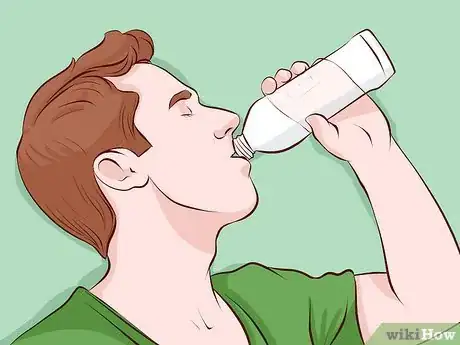
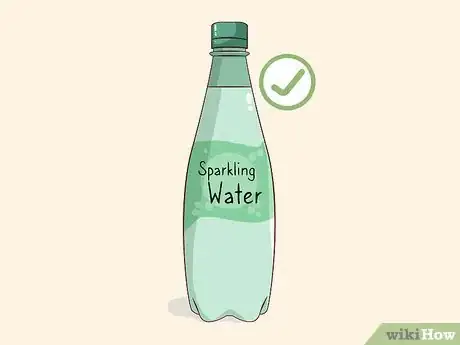









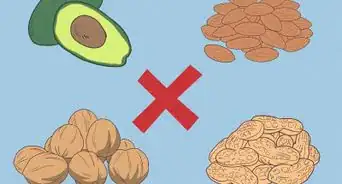
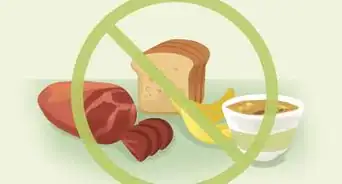
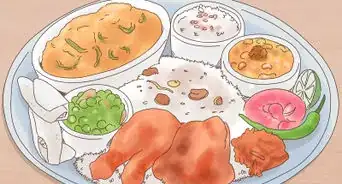


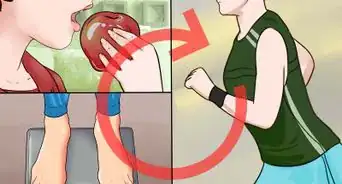

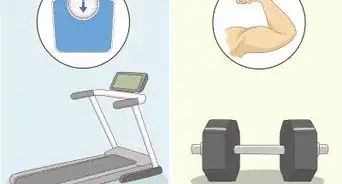












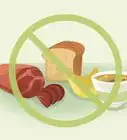




































Medical Disclaimer
The content of this article is not intended to be a substitute for professional medical advice, examination, diagnosis, or treatment. You should always contact your doctor or other qualified healthcare professional before starting, changing, or stopping any kind of health treatment.
Read More...